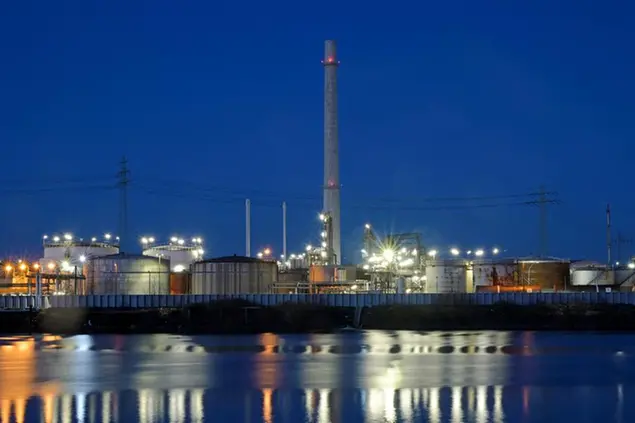PHOTO
Germany on Thursday took steps to ramp up liquefied natural gas (LNG) imports as it moves away from piped Russian supply, lining up charters for four floating storage and regasification units (FSRUs) and choosing the North Sea port of Wilhelmshaven as the first handling hub.
The FSRUs are an essential part of Germany's strategy to diversify away from Russian supply as they will bridge the time it will take to build four permanent LNG terminals.
Europe's biggest economy relies on piped Russian gas for almost a third of its supply, imports which totalled 142 billion cubic metres (bcm) in 2021.
Demand for FSRUs has risen sharply as governments across Europe scramble to find quick ways to secure more LNG.
Germany committed to chartering two FSRUs on Thursday through utility Uniper and two 10-year deals with Norwegian vessel operator Hoegh LNG to be completed by September or October, which will be operated by Uniper rival RWE .
The Economy Ministry last weekend said it wanted four FSRUs to be sourced from Uniper and RWE to speed the diversification of the country's energy away from Russian pipeline gas in the wake of Russia's invasion of Ukraine.
The northern deep-sea port of Wilhelmshaven will be the first location to host arrivals of seaborne LNG already in the winter of 2022/23.
The government has earmarked 2.94 billion euros for the FSRUs.
Initially, one of the four FSRUs will anchor in Wilhelmshaven. It will have a capacity of 7.5 billion cubic metres per year, equivalent to 8.5% of total German gas demand.
The other three will each have at least 5 bcm capacity, a joint statement by the Berlin economy ministry and Lower Saxony's environment ministry said.
The two Uniper ships will be chartered from vessel supplier Dynagas.
The gas arriving in Wilhelmshaven will be fed into Germany's pipeline grid via ship-to-onshore links to be provided by Niedersachsen Ports GmbH & Co. KG (NPorts) and in close cooperation with Uniper.
In the longer term the aim is to be able to switch to renewable gas and clean hydrogen at the site, in line with Germany's climate protection commitments.
Uniper will invest 65 million euros ($68.82 million) in the project.
Chief Executive Klaus-Dieter Maubach said Uniper would leverage its "expertise as a global LNG protagonist and gas trader."
A connection line from the port to existing long-distance gas transport pipelines and underground storage caverns is being built by regulated pipeline company OGE.
($1 = 0.9445 euros)
(Reporting by Vera Eckert, additional reporting by Nora Buli, editing by Elaine Hardcastle)
